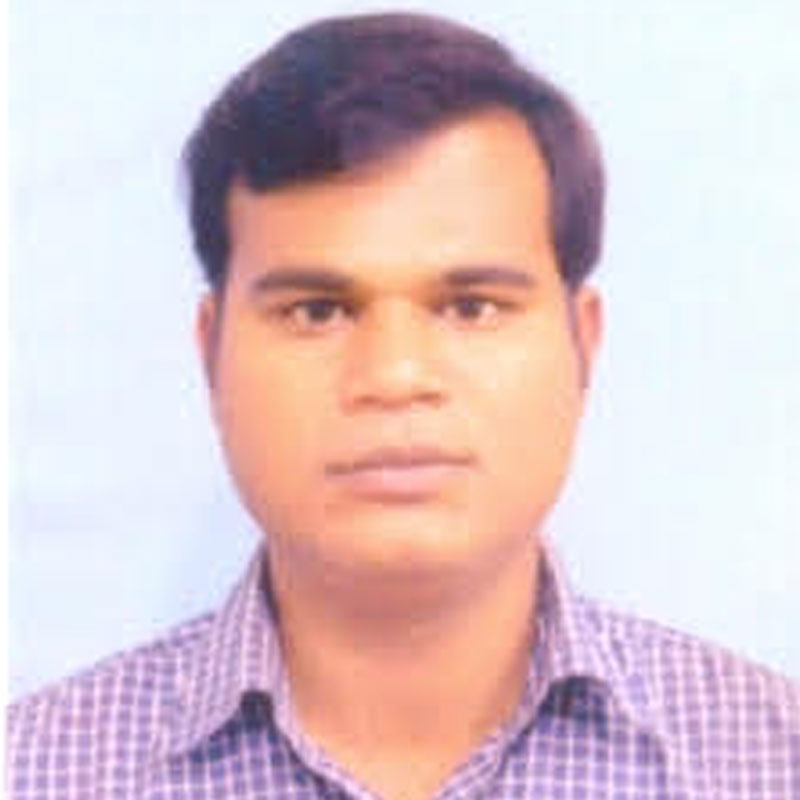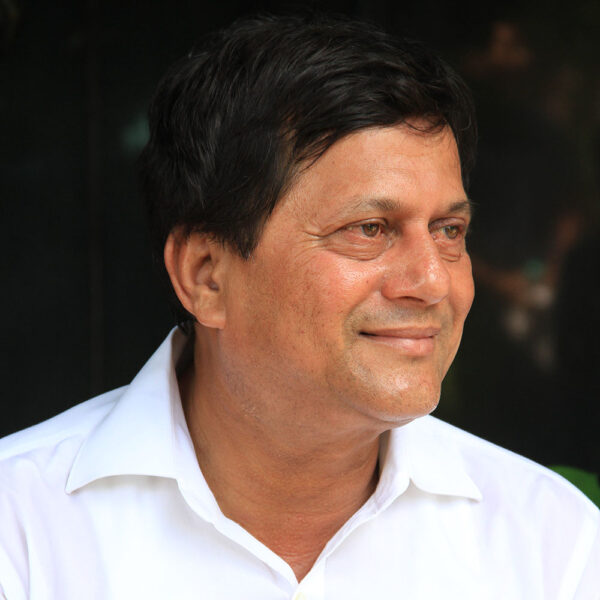
Bishnu Prasad De
Assistant Professor (II)
Bishnu Prasad De received his B.Tech degree in Electronics & Communication Engineering from Jalpaiguri Government Engineering College, West Bengal, India, in 2007; M.Tech degree in VLSI Design from IIEST Shibpur, West Bengal, India in 2009 and Ph.D degree in Microelectronics and VLSI Technology from National Institute of Technology Durgapur, West Bengal, India in 2016. He worked as an Assistant Professor at Haldia Institute of Technology, West Bengal, India for more than seven years. In 2017, he joined at KIIT Deemed to be University, Bhubaneswar, Odisha, India and currently serves as an Assistant Professor (II). His research interests includes Nano-scale device modeling and characterization, Analog and Mixed Signal IC Design, RF Integrated Circuit Design.
Profile Links
Email :
[email protected]
Scopus Id :
56531529800
Google Scholar :
https://scholar.google.co.in/citations?user=nDwAtC0AAAAJ&hl=en
Social Links
Ph.D
Research Interests
VLSI Circuits & Systems, EDD, Soft Computing
1. B. P. De, R. Kar, D. Mandal and S. P. Ghoshal, “PSO with Aging Leader and Challengers for Optimal Design of High Speed Symmetric Switching CMOS Inverter”, International Journal of Machine Learning and Cybernetics, Springer, vol. 8, no. 4, pp.1403–1422, 2017.
2. B. P. De, R. Kar, D. Mandal and S. P. Ghoshal, “Optimal Design of High Speed Symmetric Switching CMOS Inverter using Hybrid Harmony Search with Differential Evolution”, Soft Computing, Springer, vol. 20, no. 9, pp. 3699-3717, 2016.
3. B. P. De, R. Kar, D. Mandal and S. P. Ghoshal, “An Efficient Design of CMOS Comparator and Folded Cascode Op-Amp Circuits using Particle Swarm Optimization with an Aging Leader and Challengers Algorithm”, International Journal of Machine Learning and Cybernetics, Springer, vol. 7, no. 2, pp. 325-344, 2016.
4. B. P. De, R. Kar, D. Mandal and S. P. Ghoshal, “Soft Computing based Approach for Optimal Design Of On-Chip Comparator and Folded-Cascode Op-Amp Using Colliding Bodies Optimization”, International Journal of Numerical Modelling: Electronic Networks, Devices and Fields, Wiley, vol. 29, no. 5, pp. 873-896, 2016.
5. B. P. De, K.B.Maji, R. Kar, D. Mandal and S. P. Ghoshal, “Design of optimal CMOS analog amplifier circuits using a hybrid evolutionary optimization technique”, Journal of Circuits, Systems and Computers, World Scientific, DOI: 10.1142/S0218126618500299, pp. 1-23, 2017.
6. B. P. De, R. Kar, D. Mandal and S. P. Ghoshal, “Particle Swarm Optimization with Aging Leader and Challengers for Optimal Design of Analog Active Filters”, Circuits, Systems & Signal Processing, Springer, vol. 34, no. 3, pp. 707-737, 2015.
7. B. P. De, R. Kar, D. Mandal and S. P. Ghoshal, “Optimal Selection of Components Value for Analog Active Filter Design Using Simplex Particle Swarm Optimization”, International Journal of Machine Learning and Cybernetics, Springer, vol. 6, no. 4, pp. 621-636, 2015.
8. B. P. De, R. Kar, D. Mandal and S. P. Ghoshal, “Optimal Analog Active Filter Design Using Craziness based Particle Swarm Optimization Algorithm”, International Journal of Numerical Modelling: Electronic Networks, Devices and Fields, Wiley, vol. 28, no. 5, pp. 593-609, 2015.
9.B.P. De, K. B. Maji, R. Kar, D. Mandal, S. P. Ghoshal, “Evolutionary computation based sizing technique of nulling resister compensation based CMOS two-stage op-amp circuit”, International Journal of High Speed Electronics and Systems, vol. 27, nos. 1& 2, pp.1-16, 2018.
10. K.B.Maji, B. P. De, R. Kar, D. Mandal and S. P. Ghoshal, “Optimal Switching Characterization of High Speed CMOS Inverter Design Using Social Emotional Optimization Algorithm”,Journal of Engineering Science and Technology Review, 11 (2) (2018) 182 - 195.

